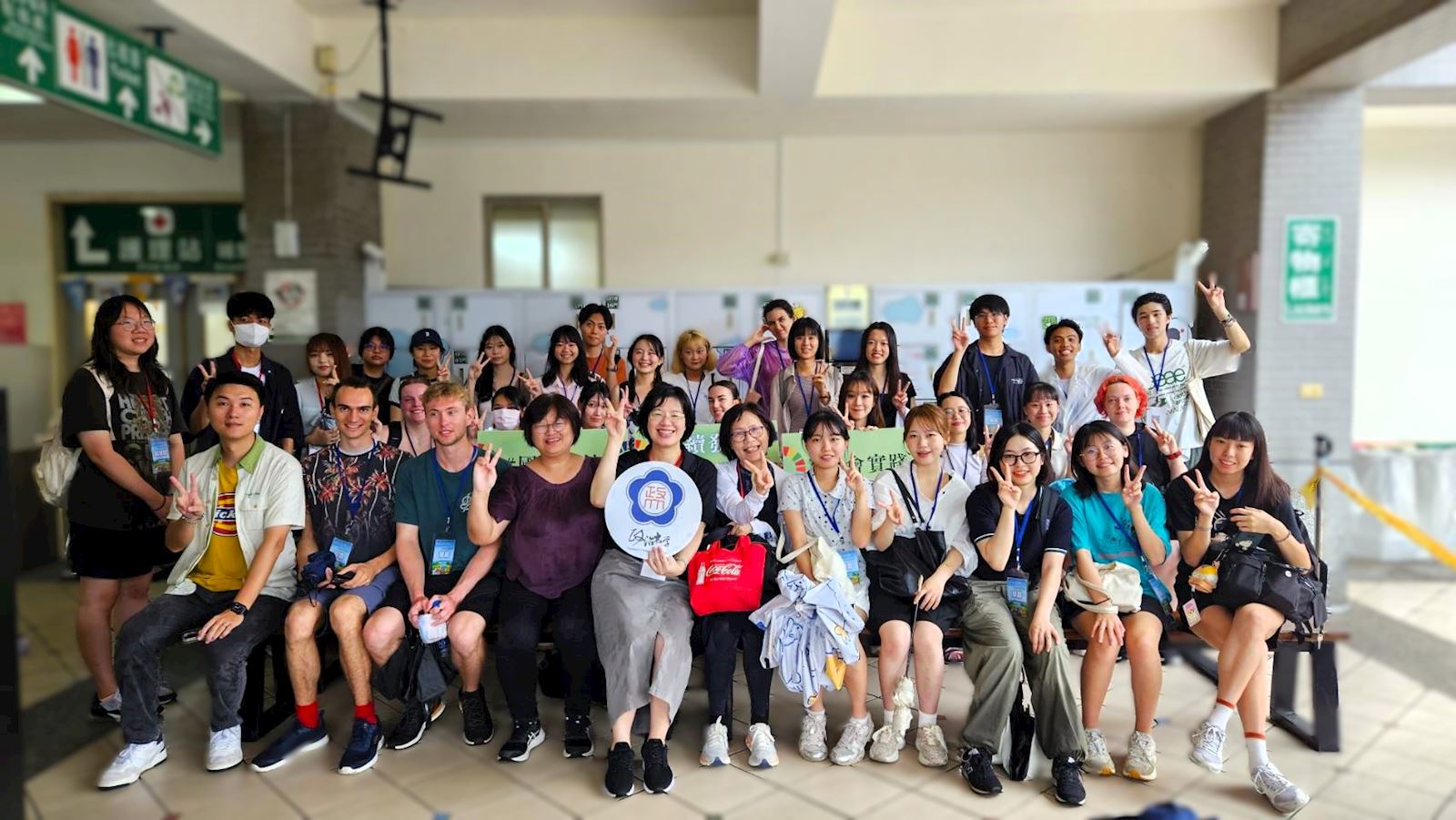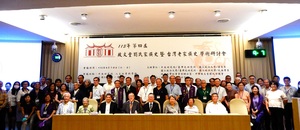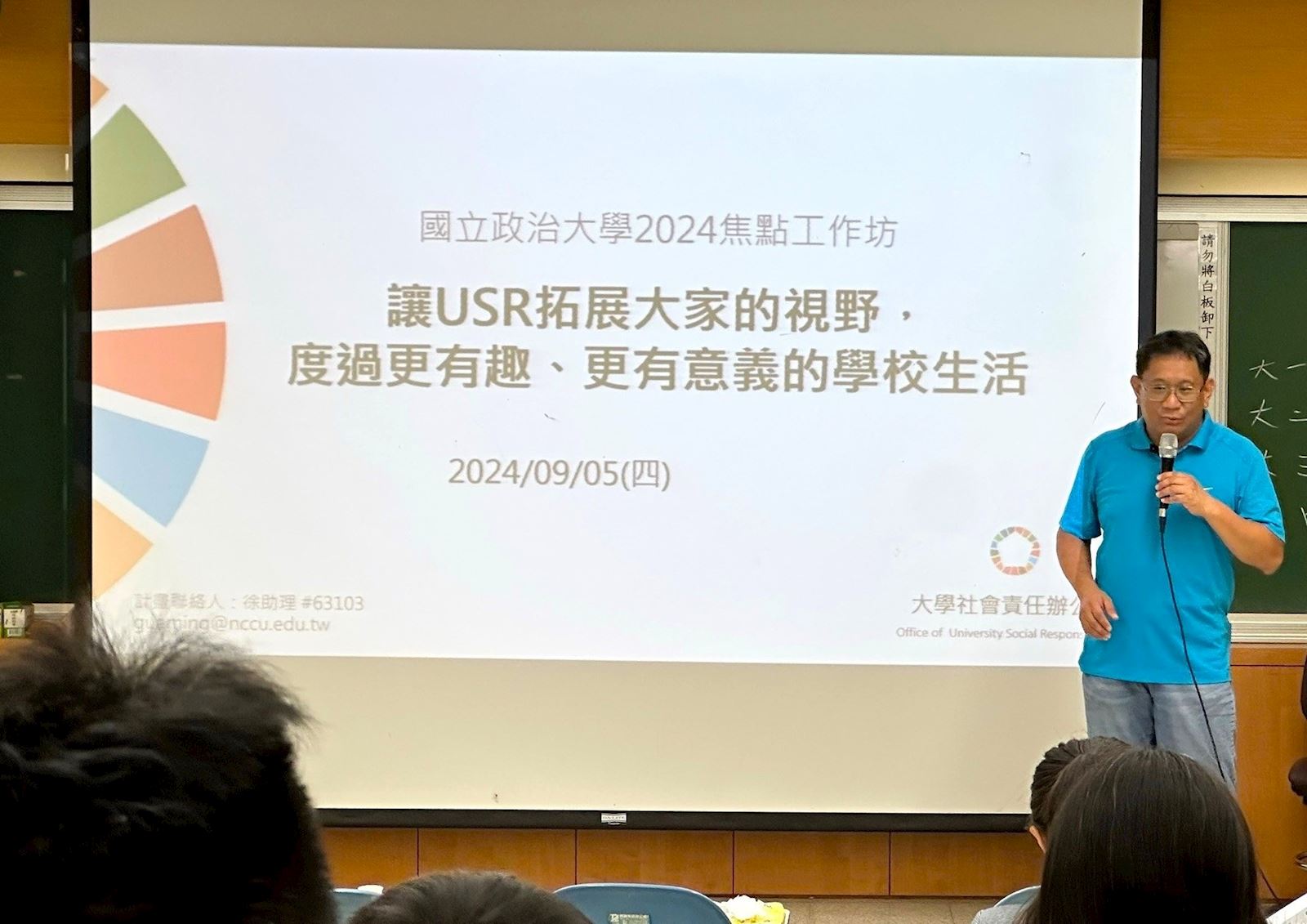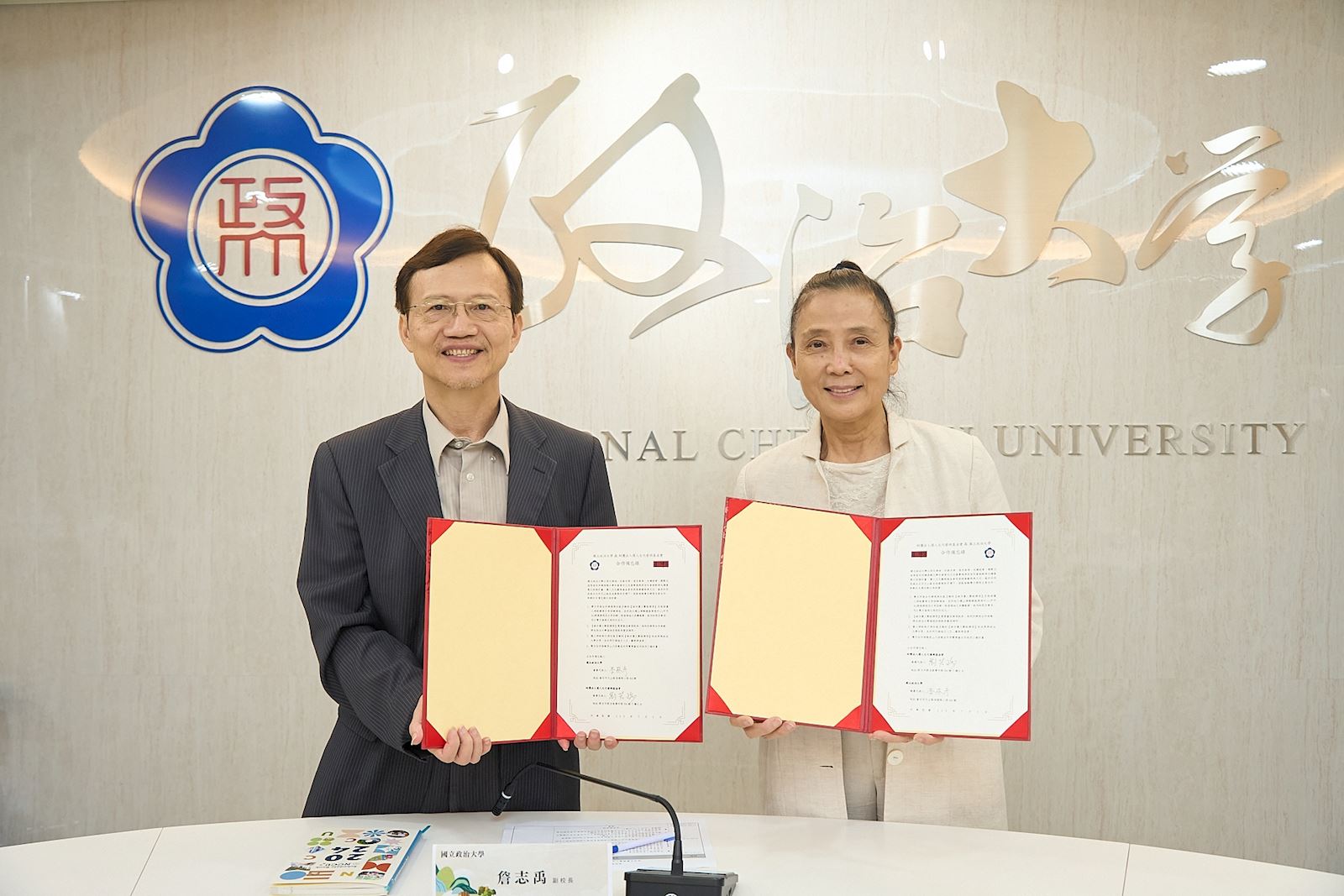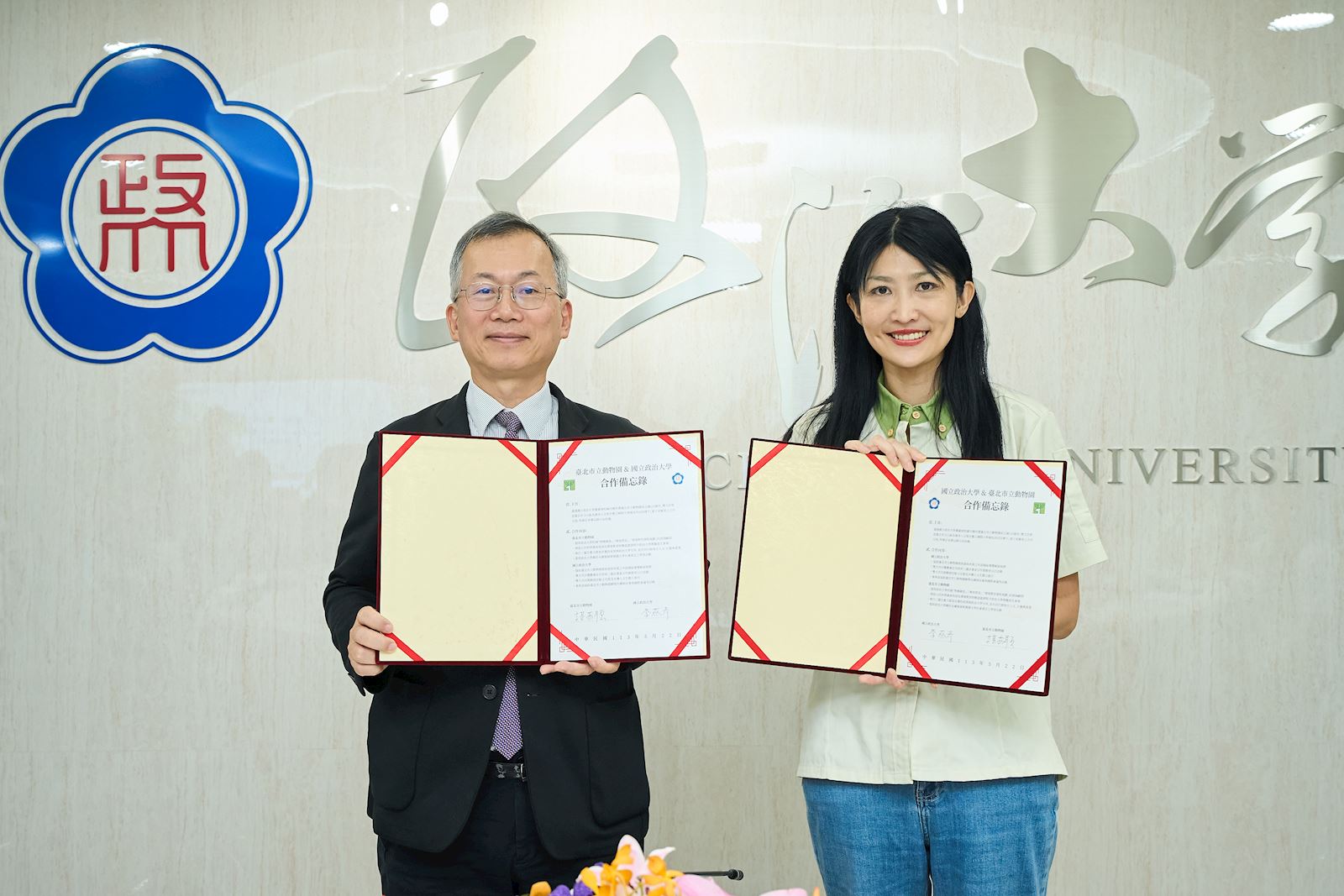【Campus News Reporter: Xie Pei-Yu】
To fulfill its social responsibility, NCCU is actively promoting various USR (University Social Responsibility) programs. The "Rural K-12 Humanities, Arts, and Technology Literacy Enhancement Program" is structured around STEAM (Science, Technology, Engineering, Arts, and Mathematics) and aims to extend humanities and arts education to Taiwan's rural areas through technology and networks, allowing local cultures to be deeply ingrained in the children’s education. The K-12 program leader, Dean of the College of Education, Guo Zhao-Yu, said, "Social responsibility is not only the responsibility of universities; it is important to cultivate all students with a sense of social responsibility."
To address the issues of lack of teaching staff and resources in rural education, the K-12 program integrates cross-disciplinary teaching of technology and arts, linking university STEAM-related general and professional courses. This brings social practice actions into the classroom, allowing college students to participate in social practices. Through local teacher training at demonstration sites in rural areas, the program allows arts education to deeply take root through networks and technology. Guo Zhao-Yu mentioned that the reduction in Ministry of Education funding has indeed posed challenges to the program, but he expressed deep gratitude for the President’s strong support, using internal university funding to ensure the program’s smooth progress.

The K-12 program is an integrated initiative, a cross-disciplinary collaboration between the College of Education, College of Communication, and College of Science. The project team combines various faculty and courses to lead college students in their participation. For example, Associate Professor Zeng Zheng-Nan from the Department of Applied Mathematics, who has led the "Soobi (Shi Bi Shou) Technology Arts Education Promotion Team" for many years, uses Soobi to promote offline learning. Through the MAGICBOX devices and KOLIBRI digital platforms, Soobi allows children in rural areas to continue digital learning even without internet resources, while continuously enhancing arts and humanities education. In addition, Professor Huang Wei-Wei from the Department of Broadcasting and Television suggested the concept of digital picture books, which not only preserves the text and images for future generations but also allows children to understand their own culture through artistic courses. By cultivating local stories, Taiwan's culture can be deeply rooted, and both locals and outsiders can learn about local culture through picture books.



One of the key goals of the K-12 program is to train rural arts education talent. Professor Ni Ming-Xiang, now the Vice President for Research and Development, proposed the concept of demonstration sites. By establishing demonstration points in rural areas, a network of local teachers can be trained, and these teachers can become seed roles, continuously developing the area. The team can also update training content through NCCU's experimental base, forming a mutual support system for the rural teacher network. Guo Zhao-Yu further stated that the university plans to inventory cross-disciplinary courses from the College of Education, College of Science, and College of Communication, and to develop key courses as part of the STEAM cross-disciplinary credit program, allowing students to participate in the USR program. He said, "The K-12 program is a collaboration between universities and primary and secondary schools. The university team is not only composed of professors but also students, and through this process, we hope to cultivate students who have these abilities and a sense of social responsibility."
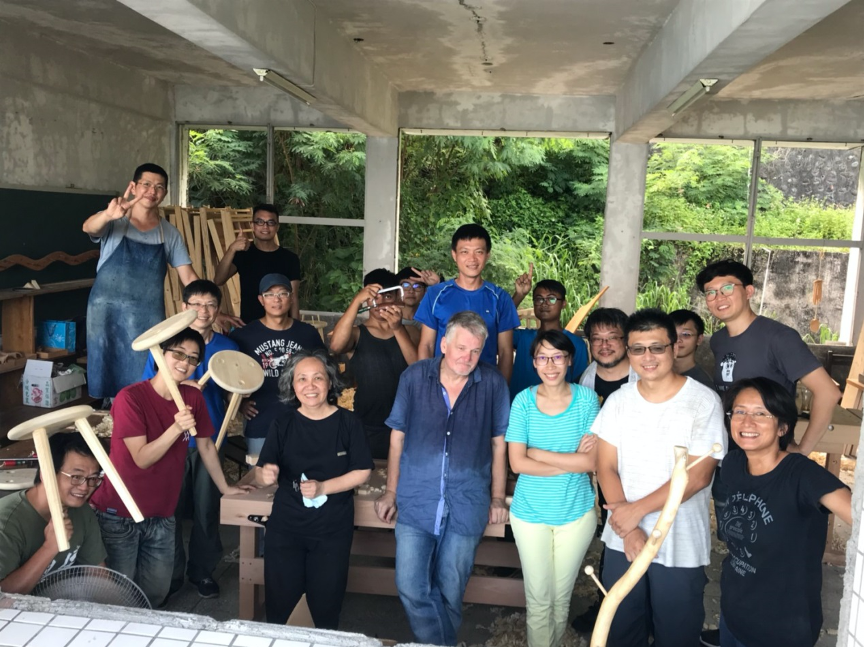
The K-12 program uses STEAM education as a blueprint, integrating humanities, arts, and technology literacy courses into rural schools. It has been promoted in rural and island areas in northern, central, and eastern Taiwan, and in the future, it is expected to cooperate with enterprises to facilitate the smooth expansion of the entire project. Guo Zhao-Yu sincerely stated, "We hope to start with art and technology to reduce the urban-rural gap!"

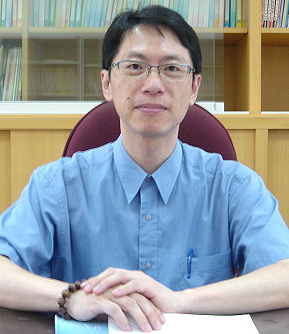
Related Links
Original Source: NCCU Campus News
